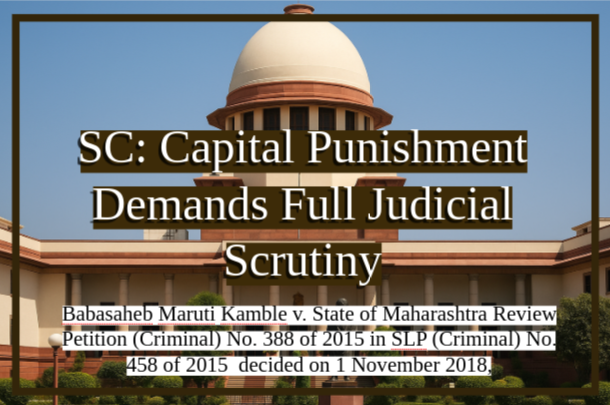Article 20(3) Doesn’t Bar Voice Sample Collection in Criminal Cases
- M.R Mishra

- Oct 14, 2025
- 2 min read
In Rahul Agarwal v. State of West Bengal & Anr., the Supreme Court revisited the enduring intersection of criminal procedure, technology, and constitutional protection against self-incrimination under Article 20(3). The case arose from a dowry-related death where investigators sought the voice sample of a key intermediary allegedly involved in extortion threats.
What's The Matter?
The Magistrate permitted the sample’s collection, but the Calcutta High Court quashed the order, citing the absence of explicit power under the Code of Criminal Procedure (CrPC) and the pendency of a reference before a larger Bench.
What Court Said?
The Supreme Court, speaking through Justice K. Vinod Chandran, found both grounds unsustainable.
It observed that the High Court erred in refusing to follow binding precedent merely because of a pending reference, which had, in fact, been closed without adjudication.
Referring to Ritesh Sinha v. State of Uttar Pradesh (2019) 8 SCC 1, the Court reaffirmed that even under the unamended CrPC, a Magistrate could order a person accused or witness to provide a voice sample for investigation.
The Court drew heavily on State of Bombay v. Kathi Kalu Oghad (AIR 1961 SC 1808), the seminal decision that distinguished between testimonial compulsion and physical evidence. It reiterated that providing fingerprints, handwriting, or voice samples does not amount to “being a witness against oneself,” as such acts are not communicative testimony but merely mechanical aids for comparison.
Hence, the act of furnishing a voice sample cannot attract Article 20(3)’s protection against self-incrimination.
The Bench also highlighted that the new Bhartiya Nagarik Suraksha Sanhita, 2023 (BNSS) which replaced the CrPC explicitly codifies this power in Section 349, leaving no room for ambiguity. Whether governed by the CrPC or the BNSS, the principle remains identical: a Magistrate has inherent authority to order the collection of a voice sample as part of investigative necessity.
By setting aside the High Court’s order and restoring the Magistrate’s directive, the Court reinforced the consistent jurisprudence that law must evolve alongside forensic technology.
The judgment reflects a broader trend in Indian criminal law harmonizing individual rights with the demands of effective investigation.
In reaffirming this balance, the Supreme Court sent a clear message: procedural fairness cannot be used as a shield to obstruct legitimate investigation when constitutional safeguards remain intact. The right against self-incrimination protects one’s conscience, not one’s vocal cords.







Comments